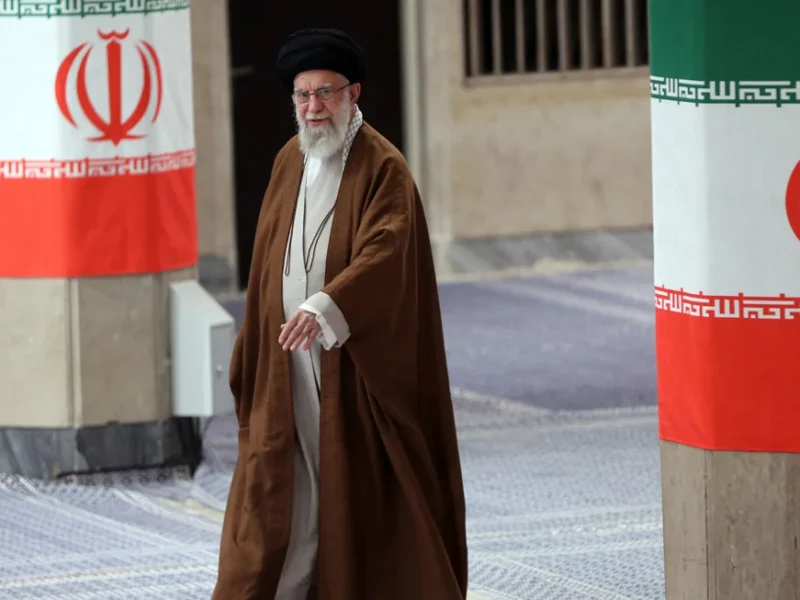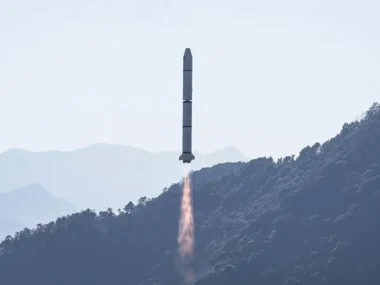Iranian operatives have intensified their efforts to influence and monitor the U.S. presidential election by establishing fake news outlets aimed at both liberal and conservative voters. They have also attempted to hack a U.S. presidential campaign, according to a report by Microsoft released late Thursday.
One of these fake news sites, allegedly set up by Iranian operatives, used derogatory language to describe former President Donald Trump, calling him an “opioid-pilled elephant in the MAGA china shop” and a “raving mad litigiosaur,” according to Microsoft researchers.
Another fraudulent Iran-backed site presents itself as a “trusted source for conservative news” in Savannah, Georgia, with a focus on LGBTQ issues and gender reassignment. Microsoft notes that while these sites haven’t gained significant traction on social media yet, their influence could grow as the election approaches.
The report, based on open-source information and Microsoft’s extensive internal data, provides clear examples of what U.S. intelligence officials recently described as a covert social media campaign by Iran aimed at undermining Trump’s candidacy and increasing “social discord” in the U.S. ahead of the November election.
The findings also highlight the growing number of foreign actors seeking to create divisions around U.S. elections, a trend that has expanded since Russia’s extensive efforts to influence the 2016 election.
According to Clint Watts, general manager of the Microsoft Threat Analysis Center, the Iranians have prepared for influence campaigns on trending election-related topics and have begun to activate these campaigns, particularly in swing states, to stir up controversy or sway voters.
Additionally, a hacking group connected to Iran’s Islamic Revolutionary Guard Corps attempted to breach the email account of a high-ranking official in a U.S. presidential campaign in June, as reported by Microsoft. Although Microsoft informed the campaign of the hacking attempt, they did not publicly disclose which campaign was targeted.
An official with Vice President Kamala Harris’ campaign stated that they had not been notified of any such targeting by Microsoft. CNN has sought comments from the Trump campaign on this matter.
Meanwhile, since April, Russian operatives have attempted to generate headlines with fabricated scandals, falsely claiming that the CIA instructed a Ukrainian troll farm to disrupt the upcoming U.S. election, that the FBI wiretapped Trump’s residence, and that Ukrainian soldiers burned an effigy of Trump, according to Microsoft.
Chinese online entities have also tried to use hundreds of thousands of online accounts to amplify outrage over pro-Palestinian protests at U.S. universities this spring, as noted in the Microsoft report.
The governments of Iran, Russia, and China consistently deny any involvement in election influence operations.
It is common during U.S. presidential campaigns for hackers linked to Iranian, Russian, and Chinese intelligence services to attempt to gather intelligence on campaign positions or personnel. In 2020, Microsoft warned that the same group of Iranian hackers was targeting Trump’s reelection campaign, while Chinese hackers were targeting individuals connected to Joe Biden’s campaign.
Attempts to disrupt the U.S. election are looming large, with foreign entities intensifying their efforts to interfere.
U.S. officials are preparing for various foreign intelligence agencies to try to influence or undermine confidence in the 2024 election, capitalizing on a domestic environment already fraught with beliefs about voter fraud.
According to a recent assessment by the Office of the Director of National Intelligence (ODNI), Russia is seen as the main threat to U.S. elections. Officials have warned that Russian operatives and propagandists are likely to use social media covertly to diminish support for Ukraine in key swing states during the election.
China is not expected to try to influence the presidential election outcome directly, but U.S. intelligence is keeping an eye on the possibility that Chinese-linked actors might target down-ballot candidates with negative propaganda, as stated in the ODNI assessment.
The threats attributed to Iran concerning the Trump candidacy extend beyond online activity. Recent intelligence reports from a human source revealed a plot by Iran to assassinate Trump, prompting the Secret Service to boost security around the former president. On August 6, the Justice Department charged a Pakistani individual with alleged connections to the Iranian government for reportedly planning political assassinations.
Iran has denied these assassination plot allegations. The tensions stem from Trump’s order to kill Iranian General Qasem Soleimani during his presidency and his withdrawal from an international agreement aimed at limiting Iran’s nuclear program. Iran has vowed retaliation for Soleimani’s death.











